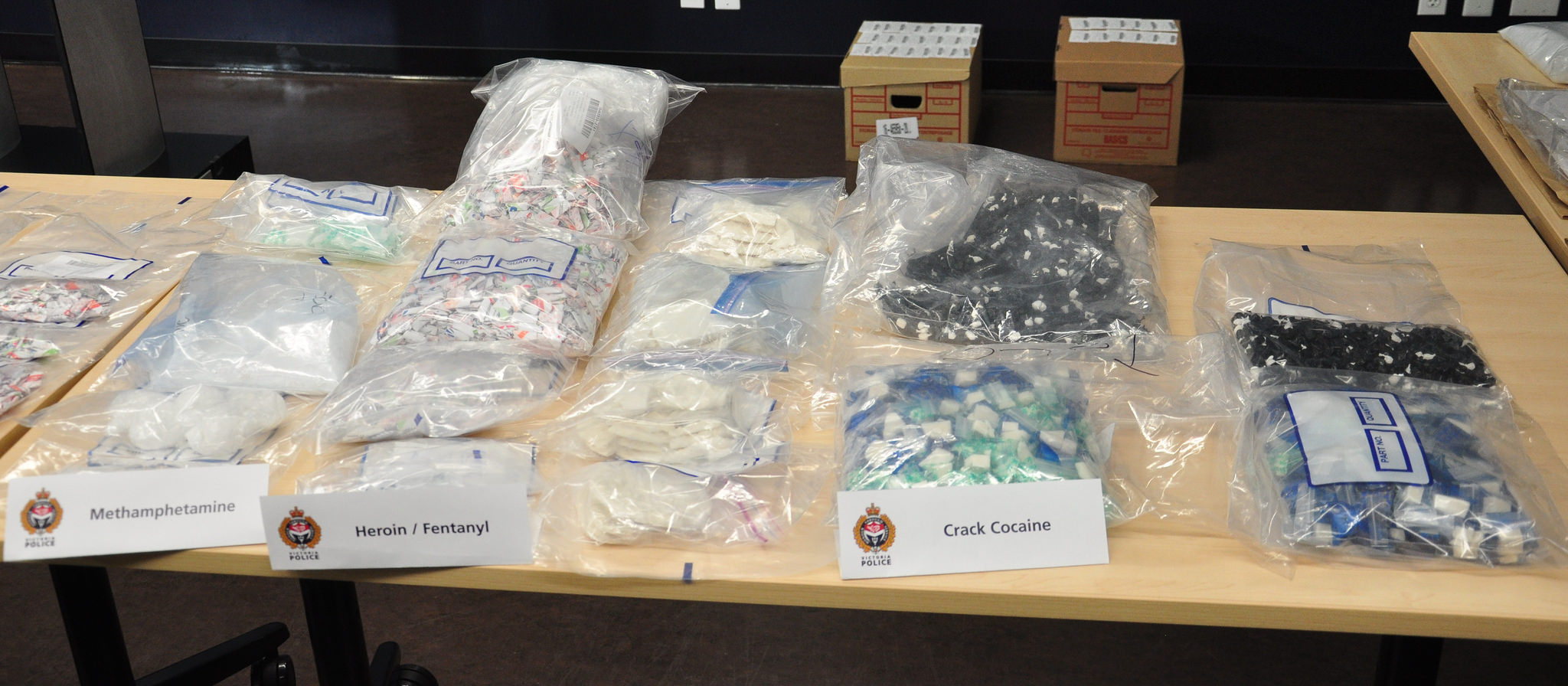
Competition between China and the US has become increasingly tense in all fields. On the one hand, economic friction is still growing and the two sides are going to launch the second round of tariff increases, which will cover more imports. On the other, the US accuses China of interfering in its internal affairs and misunderstanding between the two is deepening. With incessant bad news, observers are increasingly pessimistic about the future of China-US relations. Some even believe that the two countries are entering into a new cold war. However, some positive factors in China-US relations have been neglected. Cooperation on the question of fentanyl is one of them.
Fentanyl is an opioid analgesic produced through chemical synthesis. At the beginning of this century, it got abused and became a new drug, with high addiction and toxicity. Fentanyl presents a new challenge for anti-drug agencies since it may be used to synthetize many chemical compounds with similar effects and the scope of drug regulation must thus be constantly readjusted and expanded. Furthermore, the effect of fentanyl is far stronger than morphine, heroin, and other similar drugs and drug traffickers only need a small quantity of fentanyl compound to dilute and distribute within local networks. Fentanyl is also cheaper to manufacture than heroin and other traditional drugs. The internet, the online black market, and other new channels are often used by drug traffickers.
In 2015, the numbers of fentanyl addicts and overdose deaths increased rapidly in the US, to the extent of a ‘fentanyl crisis’. The public health crisis was heeded by the US government. President Donald Trump described it as ‘the worst drug crisis in the history of America and even the whole world.’ The American government believed that China and Mexico were the main sources of fentanyl-containing drugs in the US, which had entered into the US by way of smuggling. The Chinese government found the view groundless but still expressed willingness to cooperate with the US on this question.
In the past year, the two countries have achieved some results in cracking down on fentanyl. In February 2017, China announced the inclusion of carfentanyl and three other fentanyl substances in its list of controlled narcotic drugs. The 8th US-China Drug Control Intelligence Exchange was conducted in Beijing in October 2017. The two sides discussed cooperation in tightening prohibition and investigation. In August 2018, law enforcement departments of the two countries jointly smashed an illegal fentanyl supply network from China to the US and twenty one suspects were arrested in China. It was the first joint law enforcement operation against fentanyl smuggling. In September 2018, 32 additional new drugs were added to the Chinese list of controlled narcotic drugs, including two fentanyl substances. In 2019, the US Drug Enforcement Administration (DEA) will set up an office in Guangdong Province for closer cooperation with Chinese law enforcement agencies.
Both the US DEA and Department of Justice speak positively of the cooperation on the fentanyl question. Actually the two countries had a serious misunderstanding on the issue. Some American media even believed that fentanyl was a new type of opium war launched by China against the US to sap the latter’s long-term national strength. However, the misunderstanding did not prevent the two countries from conducting practical cooperation for a number of reasons. First, both countries believe that drugs present an intolerable social menace. China and the US both face a severe drug threat and both take a harsh attitude towards the manufacturing of and trafficking in drugs. Second, the two countries want to find specific technical solutions. To combat drugs, complex systematic engineering is essential, including drug control, regulation of distribution channels, crackdowns on criminal activities, and interruption of the financing networks. Law enforcement agencies of the two countries have addressed the issue from these professional perspectives and gradually mitigated the issue. Third, the fentanyl issue is not politicized. Unpleasant exchanges took place very briefly and did not impede the institutional dialogue and cooperation between law enforcement agencies.
The handling of the fentanyl question offers important lessons on how cooperation should be developed between the two countries. Competition in certain areas does not necessarily mean an inability to cooperate as usual in other fields.
The first lesson is that the two sides should establish rules and moral criteria to abide by. A shared view on drugs has been an important prerequisite for this cooperation. Besides campaigns against drugs, the two countries need to establish similar rules and bottom lines in many more fields, such as not supporting terrorism, avoiding military conflict, and not interfering with other countries’ internal affairs. During the Cold War, competition between the US and USSR turned into fierce confrontations with no moral constraints just because the two countries failed to establish bottom lines.
Second, the two sides need to find specific pathways to resolve specific issues. On fentanyl, both focused on smashing fentanyl distribution from the policy, technology, and enforcement perspectives and produced results. The two sides may also attempt to break down some of their other issues in greater detail and look for proper solutions to each and every technical problem. The same can be done with economic issues.
Third, both China and the US should avoid generalizing or politicizing their problems. When there is competition in national strength, countries are prone to miscalculate and exaggerate each other’s intentions. In this situation, any generalization or politicization will only exacerbate such miscalculation and tilt both towards a conspiracy theory perspective. On the fentanyl question, neither China nor the US accepted the false narrative of a so-called new opium war, thus leaving space for seeking resolution on the basis of facts.
